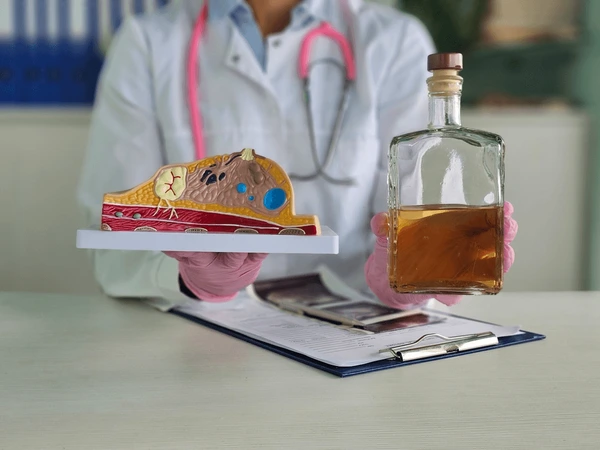How Alcohol affects Cancer Risk
the dangers of excessive alcohol consumption are often overshadowed by its role in socialization and relaxation.
Despite widespread awareness of alcohol’s link to liver disease, fewer people recognize its significant role in cancer development. This leaves many at risk, underlining the urgent need for increased public education and awareness.
Understanding the Link
Alcohol’s carcinogenic properties have been firmly established by numerous scientific studies. The International Agency for Research on Cancer (IARC), a part of the World Health Organization (WHO), classifies alcoholic beverages as Group 1 carcinogens. This classification places alcohol in the same category as tobacco smoke, asbestos, and arsenic, signifying its high potential to cause cancer.
The mechanism by which alcohol induces cancer is multifocal. One primary factor is the metabolite acetaldehyde, a toxic compound produced when the body breaks down alcohol. Acetaldehyde can damage DNA and proteins, leading to multiple mutations
Types of Alcohol-Related Cancers
Alcohol consumption is linked to a variety of cancers, with some of the most common being cancers of the mouth, throat, esophagus, liver, colon, rectum, and breast.
1. Oral and Throat Cancers:
Alcohol’s direct contact with the mucosal lining in the mouth and throat can lead to cell damage and mutations, significantly increasing the risk of cancers in these areas. The risk is exacerbated when combined with tobacco use, creating a combination effect that significantly heightens cancer risk.
2. Esophageal Cancer:
The esophagus is particularly vulnerable to the effects of alcohol. Chronic alcohol consumption can lead to Barrett’s esophagus, a condition where the esophageal lining is damaged and replaced with tissue similar to the intestinal lining, which can progress to cancer.
3. Liver Cancer:
The liver, the body’s primary detoxification organ, is heavily impacted by alcohol. Chronic alcohol use can lead to cirrhosis, where healthy liver tissue is replaced by scar tissue, impairing liver function and creating an environment conducive to cancer development. Hepatocellular carcinoma is the most common type of liver cancer linked to alcohol.
4. Colorectal Cancer:
Alcohol can alter the gut microbiome and increase the production of harmful compounds in the colon and rectum. These changes, along with direct damage to the intestinal lining, elevate the risk of colorectal cancer.
5. Breast Cancer:
The link between alcohol and breast cancer has been well studied. Alcohol can increase levels of estrogen and other hormones associated with hormone-receptor-positive breast cancer. Even moderate alcohol consumption has been shown to increase breast cancer risk.
The link between alcohol and cancer is undeniable and demands urgent attention. By increasing awareness and public awareness , we can reduce the incidence of alcohol-related cancers .

